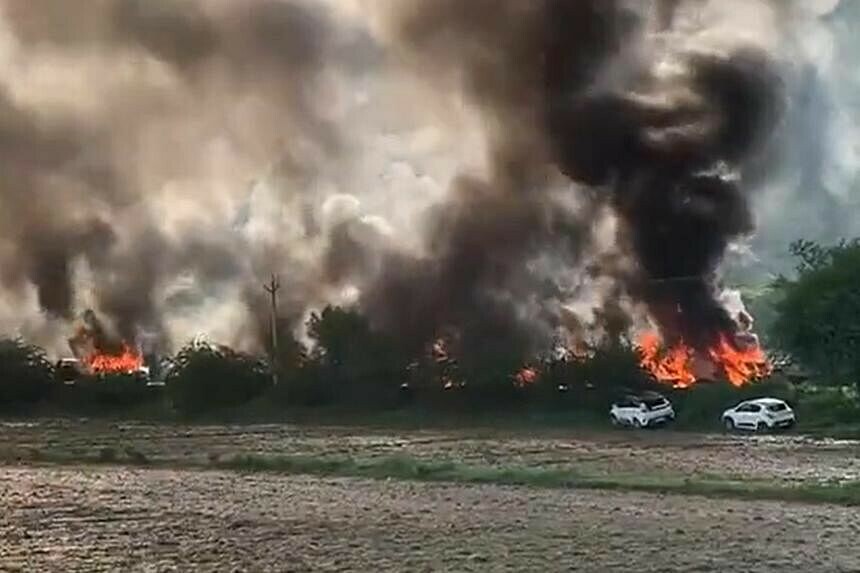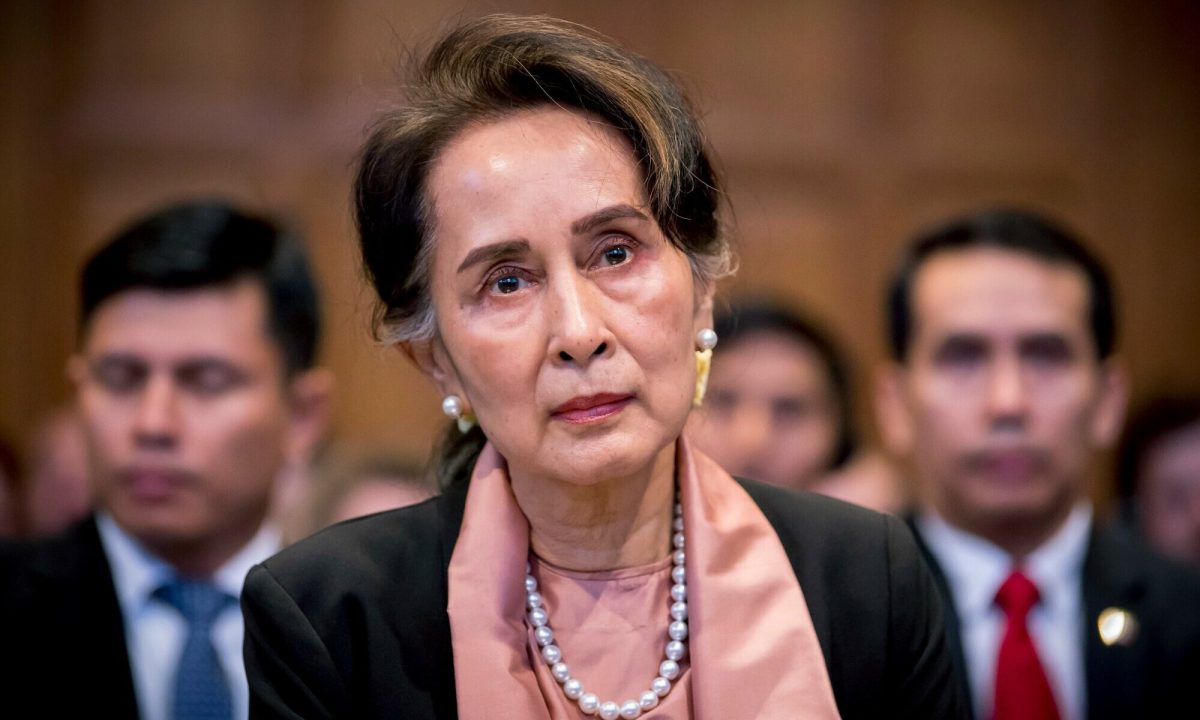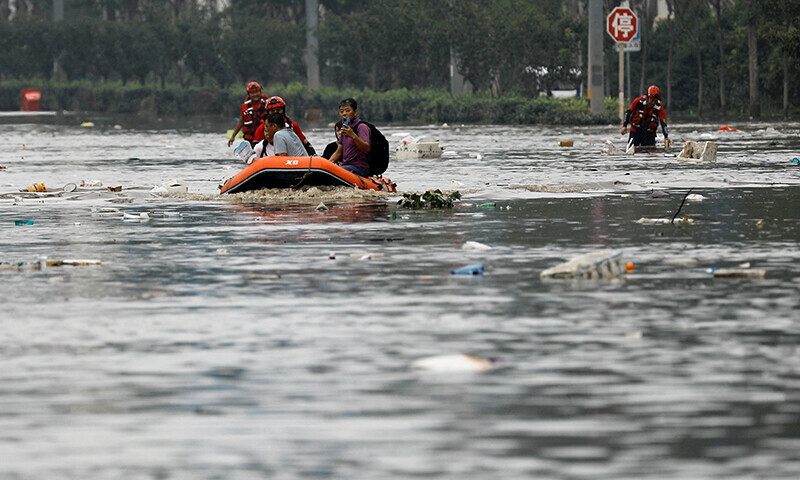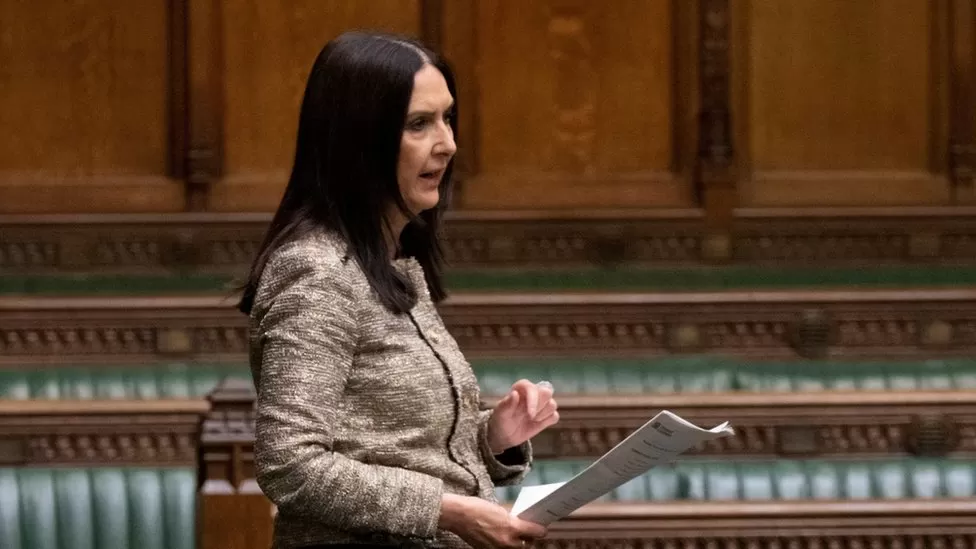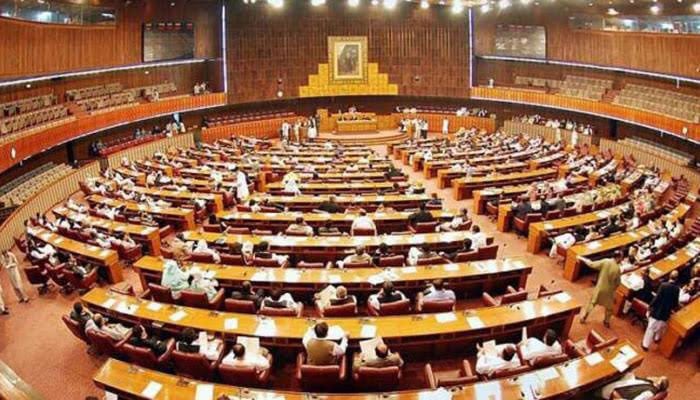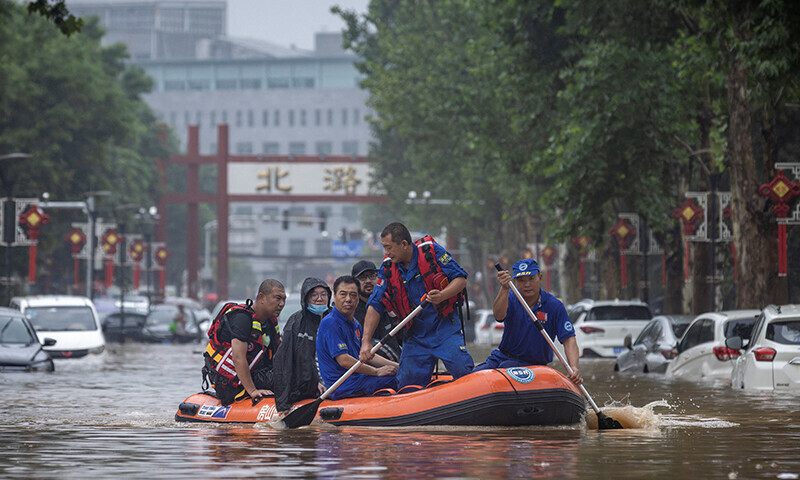Ferrier travelled to London and spoke in the Commons while awaiting the result of a Covid test in 2020. She then got a train home to Glasgow after testing positive.
Here are five reasons why the by-election will be an interesting one – and why it could have ramifications UK-wide.
Presentational grey line
1. It’s a marginal swing seat
Rutherglen and Hamilton West has changed hands at the last three general elections, bouncing back and forth between the SNP and Labour.
Like many other seats in the west of Scotland’s central belt, it had been a Labour stronghold until those red seats were washed away by an SNP-yellow tidal wave following the 2014 independence referendum.
Labour’s Tom Greatrex secured a stonking majority of 44.7% in 2010, but Ms Ferrier turned that into an SNP majority of 17.4% in 2015.
Ged Killen then won it back for Labour by just 265 votes – a majority of 0.5% – in 2017, as Jeremy Corbyn led a brief revival of the party’s fortunes.
Ms Ferrier was able to retake the seat comfortably in 2019 with a majority of 9.7%.
But less than a year later she was sitting as an independent MP, having been suspended from the SNP for breaking Covid-19 restrictions.
She would go on to plead guilty to “culpable and reckless conduct” and be given a community sentence, as well as a suspension from the House of Commons. And that suspension triggered the recall petition which has now been her ousted from her seat.
The first declaration in Scotland sees Labour take Rutherglen and Hamilton West from the SNP.
Image caption,
Labour’s Ged Killen took the seat from Margaret Ferrier in 2017 – but she won it back again in 2019
2. Campaigning has been going on for months
Technically, the by-election campaign will get underway once a writ has been issued in the Commons and the local returning officer has got their ducks in a row.
But in reality, the campaign in Rutherglen and Hamilton West has been running for months. Labour and the SNP were both registered as official campaigners in the recall petition process, signalling their intent.
Labour selected its candidate – teacher and activist Michael Shanks – back in May. Sir Keir Starmer visited the constituency later that month, following up on an earlier appearance in March.
Scottish Labour leader Anas Sarwar is an even more frequent visitor.
And the same is increasingly true of First Minister Humza Yousaf, who has taken part in door-knocking sessions as part of a series of “days of action” as he establishes himself as SNP leader.
His party has also already picked a candidate, Cambuslang councillor Katy Loudon, who will hope to hold the seat, while the Conservatives have announced that their candidate will be Thomas Kerr.
Other parties will doubtless put forward candidates in due course too – including the Liberal Democrats, who stood last time out. Ms Ferrier herself is free to stand again as an independent should she wish to do so.
There will be a national spotlight on this seat, which will mean representatives of all sorts of different causes will put themselves up. Last month’s by-election in Uxbridge and South Ruislip featured 17 candidates, while another in Selby and Ainsty had 13 names on the ballot paper.
Humza Yousaf has been out campaigning in Rutherglen several times already
3. It’s a key test for Labour
This is actually not the first SNP-Labour clash of the Sir Keir Starmer era – that came in Airdrie and Shotts in 2021, after Neil Gray opted to move to Holyrood. Anum Qaisar held the seat for the SNP with a reduced majority of 8%.
That – like Rutherglen – is one of only five seats in Scotland where Labour can target an SNP majority in single digits.
The party hopes to win a lot more than five seats in its bid to propel Sir Keir into Downing Street, so this will be an important test of how well its messages are cutting through north of the border.
Sir Keir be desperate to build momentum ahead of the next general election after a mixed set of results in last month’s English by-elections.
The difficulty for the Labour leader is that the vast majority of the seats he wants to win in England are held by the Conservatives. In Scotland, they are all held by the SNP.
That means contests north of the border are going to be fought on the left of politics, while Labour’s UK-wide messaging is more tuned into winning over right-leaning Tory voters.
The SNP have pounced gleefully on issues like the two-child cap on some benefits, which Sir Keir has said he would retain in the name of fiscal responsibility.
The plan may be to allow Scottish Labour to take the lead and shape more local messaging – even if that stands in contrast to some of the UK party’s positions. This by-election will be a measure of how well that can work.
Anas Sarwar and Sir Keir Starmer have both been out and about in the constituency
4. It’s an early measure of Humza Yousaf’s leadership
The by-election is an early electoral test for the SNP’s new leader.
Humza Yousaf came into the job having happily accepted the mantle of “continuity candidate” from the Nicola Sturgeon era.
However he has since slashed his predecessor’s policy platform to ribbons, ditching a succession of key pledges and kicking others into the long grass, all while promising “a fresh start”.
This by-election will be a chance to see how popular that approach has been with the electorate, and whether Mr Yousaf can continue Ms Sturgeon’s record of success at the ballot box.
The SNP clearly see Labour as their key rivals at the next election, and have been workshopping attack lines against them for months.
Their core campaign message is coming into focus too – that while Labour may offer a change of government at Westminster, only the SNP are offering “real change” via independence.
Indeed the phrase “SNP only party offering real change with independence” now features as the second line in nearly all one of their press releases, with almost 20 of them during the month of July alone.
That slogan will shortly feature prominently on leaflets dropping through letterboxes across South Lanarkshire.
But Labour will not want to engage in a constitutional bunfight the way the Conservatives are always happy to – so it will be intriguing to see the extent to which the question of independence factors in the campaign.
The SNP look set to put independence at the heart of their campaign – but Labour will not
5. It’s the final showdown
Whoever wins the seat will know that they will likely have to fight the campaign all over again in about a year’s time, with a general election looming.
This will be no dress rehearsal though – in fact it will likely be the last election to Rutherglen and Hamilton West.
New constituency boundaries have been drawn up and look set to be confirmed ahead of the next election, and a decent number of locals will be guaranteed to have another new MP – potentially their third in a year.
The constituency is being split up, with Rutherglen becoming a seat in its own right while absorbing more of Uddingston, while the western patch will join a new Hamilton and Clyde Valley seat.
Boundary changes are planned right across the UK, with some big changes having been drawn up in the first alterations since 2005.
So not only will the winner be back out on the doorsteps within a matter of months, they might not even be canvassing the same streets.
But they will feel they have built some crucial momentum ahead of that pivotal UK-wide contest.



